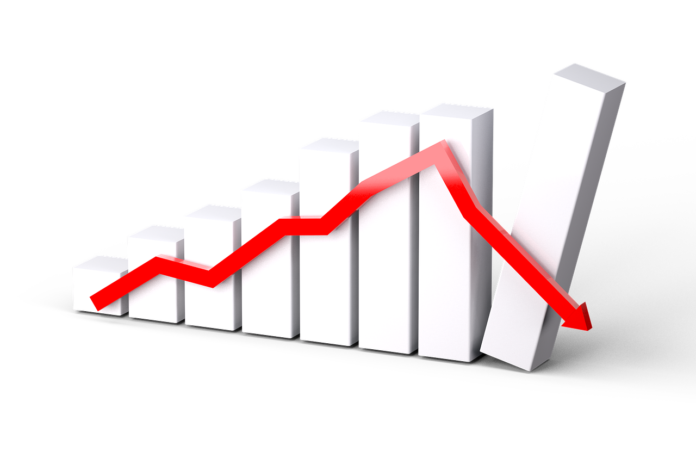The Dow Jones plunged 3,583(12%) this week in the worst stock plunge since 2008.
The S&P 500 lost 11.5% and the Nasdaq lost 10.5%.
Fears of a global pandemic and major outbreak of the Coronavirus(COVID-19) have been the biggest factor. The World Health Organization(WHO) Director-General Tedros Adhanom Ghebreyesus said, “We have now increased our assessment of the risk of spread and the risk of impact of COVID-19 to very high at a global level”. And Dr. Michael Ryan, executive director of the WHO Health Emergencies Program said, “This is a reality check for every government on the planet: Wake up, get ready. This virus may be on its way, and you need to be ready. You have a duty to your citizens, you have a duty to the world, to be ready”.
In response to the stock market dip, Federal Reserve Chair Jerome H. Powell said in a press release, “The fundamentals of the U.S. economy remain strong. However, the coronavirus poses evolving risks to economic activity. The Federal Reserve is closely monitoring developments and their implications for the economic outlook. We will use our tools and act as appropriate to support the economy”.
Some other major players in the financial industry also responded to the selloff:
—CEO of Berkshire Hathaway Warren Buffett said, “Twenty or 30 years from now, American business — and probably all over the world — will be far better than it is today. You’ll notice many of the businesses we partially own, American Express, Coca-Cola — those are businesses and you don’t buy or sell your business based on today’s headlines. If it gives you a chance to buy something you like and you can buy it even cheaper then it’s your good luck”.
—JPMorgan’s chief U.S. equity strategist Dubravko Lakos-Bujas, said, “While it is easy to turn cautious on the market after a ~10% drop, we argue investors should not discount the benefit of announced and unannounced global policy responses that are likely to outlast the impact of COVID-19. the market is pricing in rising odds of a progressive candidate, even though much can still change ahead of the DNC nomination, while polls remain firmly in favor of President Trump.”
—Goldman Sachs’s chief U.S. equity strategist David Kostin said, “Pandemic risk is real and our basket of firms that are domestically-oriented will likely outperform companies with a high share of foreign sales”.
—Citi’s head of U.S. equity strategy, Tobias Levkovich said,”There is temptation to try and bargain hunt when there’s a broad and quick painful selloff, but there is little hard data to go on with respect to the COVID-19 impact. There is definitely meaningful risk to earnings outlooks from direct sales exposures to affected countries as well as supply chain disruption”.
—Bank of America’s Global Economist Aditya Bhave said,”Growth momentum was soft even before the coronavirus shock. Extended disruptions in China should hurt global supply chains. Weak tourist flows will be another headwind for Asia. and limited outbreaks, similar to the one in Italy, are possible in many countries, leading to more quarantines and weighing on confidence”.
—Credit Suisse CIO John Woods said,”What we’re finding is that the market hasn’t been particularly nuanced about the sell-off. At best, it has merely punished high-beta sectors and indeed favored low-beta sectors. And the relative performance suggests to us that the market has been going somewhat by a standard vanilla financial template at best. I think our most important message to clients right here, right now, is that the best way to de-risk portfolios is through diversification”.
—Barclays Head of Equity Derivatives Strategy at Barclays said, “The repercussions of the shock to the Chinese economy that has already happened to the rest of the world will not be insignificant. We think it is too early to buy the dip since the repercussions from COVID-19 are likely to very bad or mildly bad”.
—Moody’s Analytics Chief Economist Mark Zandi said,”The coronavirus has been a body blow to the Chinese economy, which now threatens to take out the entire global economy. A global recession is likely if COVID-19 becomes a pandemic, and the odds of that are uncomfortably high and rising with infections surging in Italy and Korea”.
—TD Ameritrade Chief Market Strategist JJ Kinahan said,”When people don’t know how to quantify things, which is really where we’re at right now, the first reaction in the market is to sell first and figure things out a bit later.”
In general, the Sec recommends 10 things to consider before making any investment decisions in the current economy, “While we can’t tell you how to manage your investment portfolio during a volatile market, we are issuing this Investor Alert to give you the tools to make an informed decision. Before you make any decision, consider these areas of importance”:
- Draw a personal financial roadmap.
- Evaluate your comfort zone in taking on risk
- Consider an appropriate mix of investments
- Be careful if investing heavily in shares of employer’s stock or any individual stock
- Create and maintain an emergency fund.
- Pay off high interest credit card debt.
- Consider dollar cost averaging.
- Take advantage of “free money” from employer.
- Consider rebalancing portfolio occasionally.
- Avoid circumstances that can lead to fraud.
If the market continues to plunge and plunges by more then 20% the stock market will enter what’s called a Bear Market.











